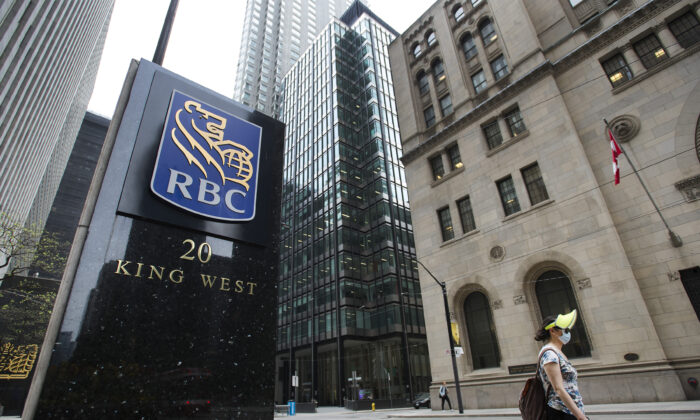Commentary
It’s a common occurrence for partisan voices to criticize the state of the Canadian economy in order to attack their political opponents. Politicians and pundits often engage in a back-and-forth of accusations across party lines.
While many in the general public tend to tune out what seems like political noise, there has been a notable increase in non-partisan voices expressing concern about the Canadian economy. These voices deserve attention.
The country’s major banks strive to remain neutral and avoid appearing to favor any political party. Their cautious approach makes a new report from the Royal Bank of Canada (RBC) on the Canadian economy particularly significant.
The report, titled “Canada’s Growth Challenge: Why the economy is stuck in neutral,” highlights troubling trends in the economy. Some of the data presented in the report indicate a regression rather than progress.
“Our economy is now smaller than it was in 2019 when adjusted for inflation and immigration, and pretty much in the same place it was a decade ago,” the report reveals.
Various factors contribute to this situation, with a significant one being the decline in manufacturing. RBC highlights that “The deindustrialization of many parts of Canada has cut into the country’s overall prosperity,” noting that “Manufacturing is half what it was to the economy in 2000.”
While economic data can sometimes seem abstract, the implications are clear – Canadians are facing challenges on multiple fronts. The decline in industries has resulted in a lower standard of living than could have been achieved.
It’s important to remember that Canada is not isolated in its economic struggles; we are part of a global economy. However, RBC emphasizes that Canada has fallen behind most major economies since 2000.
“Globally we’ve fallen behind most major economies since 2000,” the authors point out. “Canada is 30% less productive than the U.S. and close to lower-income states like Alabama in terms of economy performance than tech-rich California or New York. The result: We’ve fallen from the 6th most productive economy in the Organization for Economic Co-operation and Development in 1970 to the 18th as of 2022.”
The report also highlights a decline in productivity relative to the United States, dating back to the 1980s. A graph included in the report illustrates a steeper decline in recent years.
While the report paints a concerning picture, it also offers solutions. RBC suggests cutting red tape, addressing internal trade barriers, leveraging immigrant skills, enhancing tax competitiveness, embracing new technologies, and capitalizing on a highly educated workforce as key steps towards progress.
Implementing these solutions is easier said than done, as acknowledged by RBC. It requires a growth mindset and a willingness to tap into the potential of private individuals and businesses.
Being stuck in a neutral gear is not conducive to the future well-being of Canadians or their children. Moving backward is even more detrimental.
The RBC report adds to a growing number of non-partisan voices expressing alarm about the state of the economy. It is crucial for the nation to heed these warnings and encourage current and future leaders to take action.
Views expressed in this article are opinions of the author and do not necessarily reflect the views of The Epoch Times.
Please provide me with alternative phrasing.
Source link







